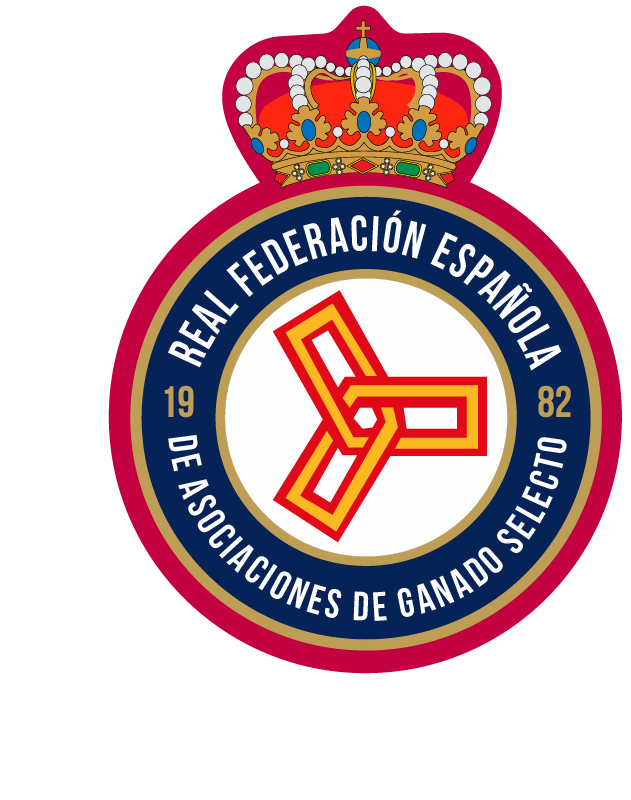

GO EXPORTGEN
The operational group “creation of a commercialisation and export structure for genetic material” made up of FEAGAS as executing member, as well as the associate members ASEAVA (Asturiana de los Valles Association), ACRUGA (Rubia Gallega Association) and ANCCE (Purebred Spanish Horse Association) are the members of the project that will be developed until July 2021. The objective of the Operational Group (O.G.) is to make these 3 breeds known outside Spain, developing a strategy of dissemination at international fairs, and setting target countries, in which to obtain contacts with potential customers, interested persons or groups of buyers, breeders, veterinarians, inseminators who would be willing to try out improved breeds for their native breeds.
All members have the necessary knowledge and skills to interrelate and share their experiences in the common objective of creating the necessary export platform for the internationalisation of Spanish breeds. These members have been chosen based on their great export potential and their experience, but the results of the project and the commercialisation structure that is developed can be applied and useful to the rest of the Associations, breeds and livestock species at national level, through the Federation’s internal dissemination media, facilitating progress in work meetings.
OBJECTIVES
Creation of a common commercialisation channel and promotion of the genetic material of purebred Spanish breeds. The setting up of the operative group and the collaboration between all of them is essential, since the export problem is a stumbling block that is sometimes difficult to overcome, so the union of the associations and companies with more experience in export is the most appropriate way to develop this project and join their knowledge and forces to achieve this common objective. Due to the limited infrastructure of the Spanish livestock association network compared to other countries that make up our international competition, this union is essential to structure the export of genetic material. Thus, to be able to achieve costs derived from promotion, prospecting for new markets, advice and transport that are compensated. This synergy will lead to the achievement of mutual benefits between the different breeds, as the diversity of needs in the target countries will make them complement each other.
For this purpose, a powerful group has been formed in which each member brings its experience, technical and strategic capacity that is complementary to those of the other members to achieve the objectives established.
FEAGAS – FEDERACIÓN FEAGAS – REAL SPANISH FEDERATION OF SELECT LIVESTOCK ASSOCIATIONS
FEAGAS emerges as the leader of the consortium as it integrates 118 breeds and represents the livestock sector (cattle, sheep, goats, pigs, horses, and other species) at national level, in addition to its extensive experience in the coordination, management and participation in research projects, which qualifies it to manage this group. His involvement in the sector and the relevance of the entity in the sector is evidenced by the representation he holds before the General Directorate of Agricultural and Livestock Resources of the Ministry of Agriculture, Fisheries and Food, by being responsible for the organisation of National and International Purebred Livestock Competitions, and by being part of different organisations: representative of the Purebred Cattle Breeding sector in Spain in the Animal Selection and Reproduction Group of COPACOGECA, within the framework of the European Union Agricultural Organisations, Presidency and General Secretariat of the European Union of Selected Cattle Associations (UNEGAS), which integrates
Purebred Breed Breeders’ Organisations from France, Portugal and Spain and promoter and founding member of INVAC, Interprofessional Organisation of Quality Native Beef. At the international level, he is currently the Permanent Secretary General of the Ibero-American Federation of Creole and Native Breeds, a meeting point for the professional and livestock sector in Ibero-America
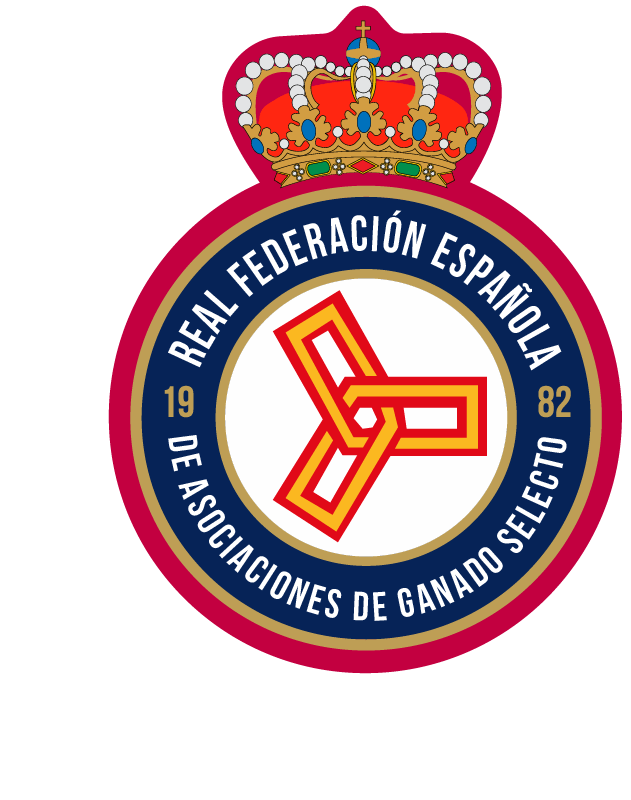
ASTURGEN

ASTURGEN (ASEAVA’s commercialising company) provides its experience and knowledge in the commercialisation of semen and embryos and in the export agents it currently uses: tools to launch its product, trained personnel for opening new markets, internationalisation procedures, logistics… as well as its participation in research projects and promotion of its products in Spain and abroad. In addition, directly thanks to ASTURGEN, it associates 4147 members and more than 63,000 breeding females distributed throughout all the Autonomous Communities.
In the project, ASTURGEN will bring its experience in exporting meat from the 100% native breed with the Ministry’s logo to Holland, Belgium, Germany, and Portugal. It will also contribute its experience in participating in international fairs to sell genetic material and the knowledge trips it has made in previous years to learn about production systems in Germany, Denmark, France, Portugal, and Italy, with the collaboration of MAPA and the Framework Programme of the Interprofessional Organisations. Although it currently has experience in export because it distributes genetic material to Poland, Canada, Mexico, Portugal, and Uruguay on a constant basis due to the increasing demand for the breed because of its skills, this export is limited by the existing technological requirements that this project and operational group wants to address.
ACRUGA brings its experience in the expansion of the breed at an international level, mainly in Europe and South America, and the export of seminal doses to third countries. This association is made up of 1,801 members, direct beneficiaries of the project related to this breed. Its contribution to the project and to the rest of the members is based on its long experience in exporting genetic material, resulting from its participation in foreign trade programmes in collaboration with the Galician Chambers of Commerce to countries such as Mexico, Lithuania, or Poland, or directly through dissemination trips to countries such as Brazil, Argentina, Venezuela and recently Indonesia. ACRUGA has opened market and commercialization channels for Rubia Gallega semen in the following countries: Brazil, Uruguay, Indonesia, Mexico, Turkey, Australia, Nicaragua, Panama, USA, Venezuela, Italy, Poland, and Portugal. In the last year, more than 200,000 doses of semen have been exported.
Despite its trajectory, many export channels with great potential still need to be developed, but where technological and technical problems arise that should be supported by the development of this project: among others Chile, Angola or Morocco for genetic material and Turkey with a high demand for live animals (heifers for rebreeding and males for slaughter).
ACRUGA

AECRANI

In 1970, the MAPA created the Stud Book for the Avileña breed of cattle, but ten years later, in 1980, the General Directorate of Agricultural Production decided to modify the denomination and update its specific regulations, creating the Stud Book and Yield Verification of the Avileña-Negra Ibérica breed, previously known as Avileña.
At its time, it was produced as a response to try to frame in larger genetic units the different groups of cattle that corresponded to a common ethnic trunk. The Avileña breed was catalogued by the MAPA in 1979 as an autochthonous breed for promotion, remaining in the same category in the current Official Catalogue, although with the official name of the breed, Avileña-Negra Ibérica.
The association participates in the following activities:
– Genetic improvement programme
– Establishment of structures and services
– Promotion of the breed
– Participation in organisations
– Collaboration with public administrations
AECERIBER is a non-profit association, made up of approximately 1,500 members and 5,500 breeders of the Iberian pig breed. Founded in Zafra (Badajoz) in 1985, its main purpose is the Defence of the Iberian Pig, being linked to the Ministry of Agriculture, Fisheries and Food as a result of its recognition as a Purebred Association under the R. D. 723/90 of 8 June. As such, it develops the Genealogical Book of the Breed, which guarantees the conservation of breeding stock on those farms dedicated to purebred breeding and selection of the breed. This genetic selection, based on an officially approved Valuation Scheme, (Resolution of 17 December 1992, Resolution of 30 December 1998 and Resolution of 10 August 2011) aims to improve the productive and maternal qualities of the Spanish Iberian Pig population, and consequently, the profitability of the farms in this sector. Proof of all this is the favourable evolution of the breed’s numbers, a fact that has been demonstrated at successive exhibitions, competitions, and auctions of breeding animals. As a unique breed, the Iberian Pig is emerging as a clearly differentiated agricultural production group, with a management system exclusive to our breed, responsible for the conservation of the natural ecosystem of the Dehesa. For this reason, AECERIBER defends its peculiar character, requesting specific regulations to protect it, the persecution of fraud and the establishment of aid for producers who, over the years, have preserved this ancient production system.
AECERIBER

ANCCE

ANCCE shows its leading role in the sector by integrating almost 250,000 animals belonging to more than 35,000 breeders in more than 65 countries and 41 delegated associations in countries such as the United States, Germany, United Kingdom, Australia, France, Italy, Mexico, Nicaragua, Guatemala, Holland, Czech Republic, Sweden. It will contribute with its experience and knowledge in exporting the breed worldwide: its promotion and export plans (20-30 trips abroad per year), organisation of the International Horse Show (SICAB), which has now been held for 26 editions, and the preparation of annual promotion plans with the Spanish Institute for Foreign Trade (ICEX) and EXTENDA. Its involvement on an international level is demonstrated by the fact that it is the representative of the Purebred Spanish Horse at COPA-COGECA (EU breeders’ association) and the WBFSH (World Breeders’ Federation of Sport Horses). Thanks to the work carried out for 15 years by the PRE Breeding Programme, in 2018, 146,833 genetic assessments of morphological aptitude and 13,509 of Dressage were published on the LG website. In addition, the lists of the 100 best animals (males and females) for their genetic index for both Classic Dressage and morphological aptitude have recently been published. This data justifies all the knowledge, experience, and capacity that ANCCE can provide to the project, but also the entity’s need of this management platform, which would allow it to increase its international presence and promote the breed in countries that, due to certain technical or technological barriers, are very limited, such as China.
The Association of Breeders and Owners of Menorquina Horses breed was established as a regional association in August 1988 with the aim of conserving, improving, and promoting the Menorquina horse breed. In 2006 its scope of recognition was extended to a national level by means of the Resolution of the Director General of Livestock.
The Breeders’ Association has been developing a series of actions aimed mainly at promoting and disseminating the Purebred Menorquina Horse at regional, national, and international level. But it has also taken on a very important role in recent years in relation to the management of its specific Conservation and Selection Programme, since 2007, and the official management of the Stud Book of the breed, since the beginning of 2008.
In addition, activities are organised and carried out throughout the year: competitions, training courses, publication of breeding catalogues, promotion in national magazines, attendance at fairs and other events, publication of promotional leaflets, collaboration with the organisation of technical studies on the breed, etc.
APCRME

UEGHá

Also called UEGHá, is the Association of breeders of purebred Hispano-Arabian horses, established in the year 2000. This professional association of businessmen will have as its objective the representation and defence of the economic and professional interests referred to the common and individual interests of its members, as breeders of horses of the Hispano-Arabian breed.
UEGHA’s aims are, but are not limited to, the following:
a) To gather all the breeders of Hispano-Arabian horses, instilling the associative feelings of all kinds, aiming at the common good.
b) To represent and defend the interests of its members as breeders.
c) To watch over the purity and selection of the Hispano-Arabian breed, its conservation and improvement.
d) To encourage the commercialisation of the Hispano-Arabian breed horses, promoting the opening of markets.
e) The Management of the Stud Book of the Hispano-Arabian Breed, by assignment of the Ministry of Agriculture.
f) To promote the training of all activities related to the equine sector.
g) To promote and expand the association’s relations with riding schools and with any other institution that directly or indirectly promotes the dissemination of the Spanish-Arabian breed.
h) To organise competitions and trials to promote the Hispano-Arabian breed.
The Association carries out its own work for the conservation and promotion of the Merino breed, with constant activities and a self-imposed responsibility that drives them to take their work so seriously. They are aware of the importance of what needs to be done, and for this reason they approach this activity from three distinct perspectives:
Improvement and conservation of the Merino breed.
Dissemination of achievements and results.
Representation of the members.
ACME
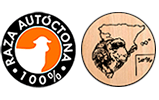
ASSAF.E
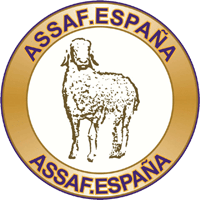
ASSAF.E is the National Association of Assaf Sheep Breeders. Created in April 2002, it manages the Genetic Improvement Programme of the breed, carrying out a constant improvement in the herds belonging to the association.
After the official recognition of the Assaf in 2003 as a breed from third countries adapted in Spain, in 2005 the Regulations of the Stud Book of the Assaf breed were approved. In the same year, ASSAF.E was officially recognised as a collaborating entity for the maintenance of the Stud Book.
Its objectives are:
– To watch over the purity of the breed, being responsible for the stud book.
– To manage the Genetic Selection and Improvement programme, which translates into a process of continuous progress in the herds belonging to the association.
– To promote the dissemination and expansion of the breed throughout the national and international territory. To this purpose, it is present at the most important events held in the livestock sector.
The Association is a non-profit organisation, made up of farmers and breeders of Payoya breed goats.
The work carried out by the Association for the conservation and improvement of the breed is detailed in the Payoya Goat Breeding Programme, which is the official regulation that sets out the characteristics of the breed, the objectives followed by the collaborating farms and details the technical bases of the work carried out by the Association, in accordance with the European and national standards that regulate the work of the organisations in the breeding programmes of pure breeds.
No less relevant is the work to promote the Payoya goat and its products, aware that the survival of the breed depends on the population’s knowledge and appreciation of the breed through the consumption of its products.
ACAPA
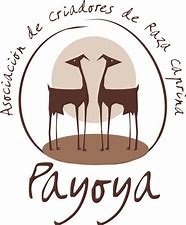
ACRIFLOR

ACRIFLOR, the National Association of Florida Breed Goat Breeders, was set up in 1996 in Villaverde del Río thanks to the initiative of Manuel Sánchez Rodríguez, together with Clemente Mata Moreno as representative of the herd of the University of Córdoba and a group of breeders from the region.
Thanks to years of work and commitment in the early 1980s, people like Manuel Rodríguez Díaz, farmer and mayor of Villaverde del Río, who, together with the support of Felipe García Chaparro, then Provincial Councillor for Agriculture, and the veterinarian José Antonio Sánchez Romero, started the journey to recover a goat population that was being lost. With their work of description, homogenisation, and selection, they laid the foundations of what is today the Florida breed.
In 1985, they worked with an experimental herd of 500 breeding cows and with totally innovative techniques in the breed, such as genealogical work, milk control, morphological evaluation and qualification, and tests of male offspring by controlled mating by batches. This excellent and valuable work is continued by Mr. José Antonio Sánchez Romero and his family, due to the withdrawal of the project by the Provincial Council of Seville.
The Spanish Association of Malaga Goat Breeders manages the Stud Book of the breed since 1987 and the Scheme of Selection and Genetic Improvement of the breed since 1999, when it was approved by the Ministry of Agriculture, Food and Environment. To this end, the quality and quantity of milk produced by each of the goats, which are individually identified with a microchip, is monitored monthly.
The main objective of this association is the genetic improvement and promotion of our breed, with the aim of increasing the profitability of the farms and thus the standard of living of the farmers and their families. In recent years, this work has been carried out in the field of genetic improvement, the improvement of animal handling and facilities and, in short, the professionalisation of the breeders and the sector.
In addition to the services offered by the Association, the aim of which is the genetic improvement of the breed, a series of other activities are carried out with the aim of disseminating the breed and developing goat farming.
CABRAMA
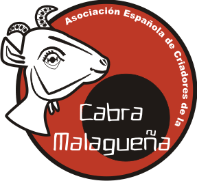
CAPRIGRAN
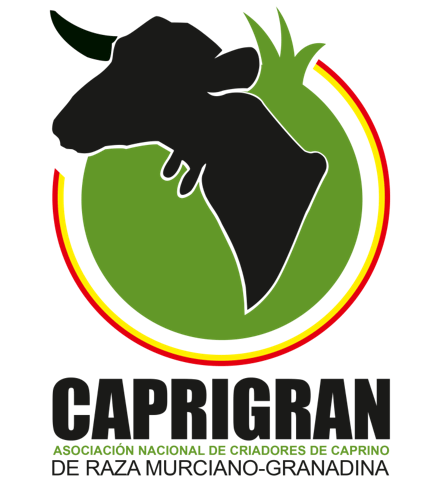
National Association of Breeders of the Murcian-Granadine Goat. Established in 1979, it has a national scope and is legally recognised for the management of the Stud Book of the Murcian-Granadine breed, according to the resolution of the General Directorate of Livestock Productions and Markets of the Ministry of Agriculture, Fisheries and Food of 29 December 1992. It oversees managing the Stud Book of the breed and the Conservation and Genetic Improvement Programme.
 Tell us about your characteristics and needs so that we can offer you the solution that best suits your context. Contact us if you have any clarifications or suggestions for products or services that you need.
Tell us about your characteristics and needs so that we can offer you the solution that best suits your context. Contact us if you have any clarifications or suggestions for products or services that you need.
Presupuesto total: 543.404,60 euros. Cofinanciado UE al 80% por el Fondo Europeo Agrícola de Desarrollo Rural- FEADER y al 20% por el MAPA. La Dirección General de Desarrollo Rural, Innovación y Formación Agroalimetnaria (DGDRIFA) es la autoridad de gestión encargada de la aplicación de la ayuda FEADER y nacional correspondiente.
https://ec.europa.eu/info/eu-
Creación de una base y estructura de comercialización e internacionalización de material genético de razas puras españolas mediante análisis de la situación actual y elaboración de plan estratégico para la exportación. El objetivo es desarrollar un análisis estratégico de la internacionalización y desarrollo de estructura y protocolos de comercialización del material genético según demanda y requisitos de países objetivos para las razas participantes del proyecto y para el conjunto de la cabaña ganadera España. Organismo responsable de contenido: miembros del GO EXPORTGEN.
 Tell us about your characteristics and needs so that we can offer you the solution that best suits your context. Contact us if you have any clarifications or suggestions for products or services that you need.
Tell us about your characteristics and needs so that we can offer you the solution that best suits your context. Contact us if you have any clarifications or suggestions for products or services that you need.
Presupuesto total: 543.404,60 euros. Cofinanciado UE al 80% por el Fondo Europeo Agrícola de Desarrollo Rural- FEADER y al 20% por el MAPA. La Dirección General de Desarrollo Rural, Innovación y Formación Agroalimetnaria (DGDRIFA) es la autoridad de gestión encargada de la aplicación de la ayuda FEADER y nacional correspondiente.
https://ec.europa.eu/info/eu-
Creación de una base y estructura de comercialización e internacionalización de material genético de razas puras españolas mediante análisis de la situación actual y elaboración de plan estratégico para la exportación. El objetivo es desarrollar un análisis estratégico de la internacionalización y desarrollo de estructura y protocolos de comercialización del material genético según demanda y requisitos de países objetivos para las razas participantes del proyecto y para el conjunto de la cabaña ganadera España. Organismo responsable de contenido: miembros del GO EXPORTGEN.


